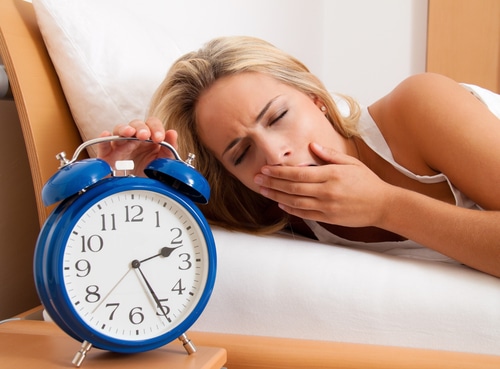
How Sleep Influences Muscle Growth
Sleep has an influence on the levels of certain hormones that affect fat loss, appetite and muscle growth. One of the most important hormones affected by sleep is growth hormone. Growth hormone levels begin to rise about an hour after you fall asleep, and it’s secreted in greatest amounts during deep sleep. If you’re skimping on sleep, you’re not spending as much time in the deep stages of sleep. That means you’re getting less growth hormone. Why is this important? Growth hormone is an anabolic hormone that boosts muscle growth and promotes fat loss. It also aids in muscle repair and recovery. The older you are, the more important it is to get enough sleep since growth hormone levels decline with age.
There’s another hormone that rises if you don’t get enough sleep. That hormone is cortisol. You don’t want high levels of cortisol if you’re trying to get lean and defined. Cortisol has the opposite effect of growth hormone. It breaks down muscle to supply the body with glucose through a process called gluconeogenesis. Normally this doesn’t happen to a large extent if you’re eating enough calories and carbs and not overtraining, but depriving yourself of sleep can boost cortisol levels. Cortisol has other undesirable effects on health and physique. It makes it harder to get rid of belly fat and reduces your immunity to colds and flu viruses.
Lack of adequate sleep also wreaks havoc with hormones that control appetite. A hormone called ghrelin that stimulates appetite rises when you’re sleep-deprived. That can send you running to the kitchen to munch out on the wrong foods. That’s one reason people who don’t get enough sleep have a hard time controlling their weight. Inadequate sleep also lowers levels of leptin, a hormone that helps to keep hunger in check.
Other Ways Lack of Sleep Makes It Harder to Get Fit
When you don’t get enough sleep, it affects your mental outlook and focus. It’s harder to concentrate and really challenge yourself at the gym when you’re sleep deprived. If you’re tired, you’re likely to do a sub-par workout that won’t give you the results you’re looking for.
If you’re not getting enough sleep and overtraining at the gym, the results will be even less satisfying. Both lack of sleep and overtraining boost cortisol levels, so you’re getting even higher levels of this belly fat boosting hormone. You’ll also be setting yourself up for a virus or other illness that’ll keep you from training as hard.
How Much Sleep Do You Need?
The optimal amount of sleep varies from person to person. As a general rule, you should get between 7 and 8 hours of sleep a night. Most research shows that when you fall below this level of sleep your risk for chronic diseases such as heart disease and type 2 diabetes goes up.
Make the time to get at least 7 hours of sleep a night, and shoot for 8 whenever you can. There’s a lot going on from a hormonal standpoint in those hours you spend slumbering that helps you build a more defined body. Don’t compromise on sleep.
References:
Growth Horm. IGF Res. 14 Suppl A: S10-7. doi:10.1016/j.ghir.2004.03.006.
Annals of Internal Medicine. December 7, 2004 vol. 141 no. 11 846-850.
Natural News. “Sleep Deprivation Increases Risk of Diabetes and Heart Disease”
Related Articles By Cathe:
How Lack of Quality Sleep Limits Muscle Growth
Does Lack Of Sleep Increase the Risk of Training Injuries?
5 Reasons When You Try To Build Muscle Your Gains Are Slower Than You’d Like

